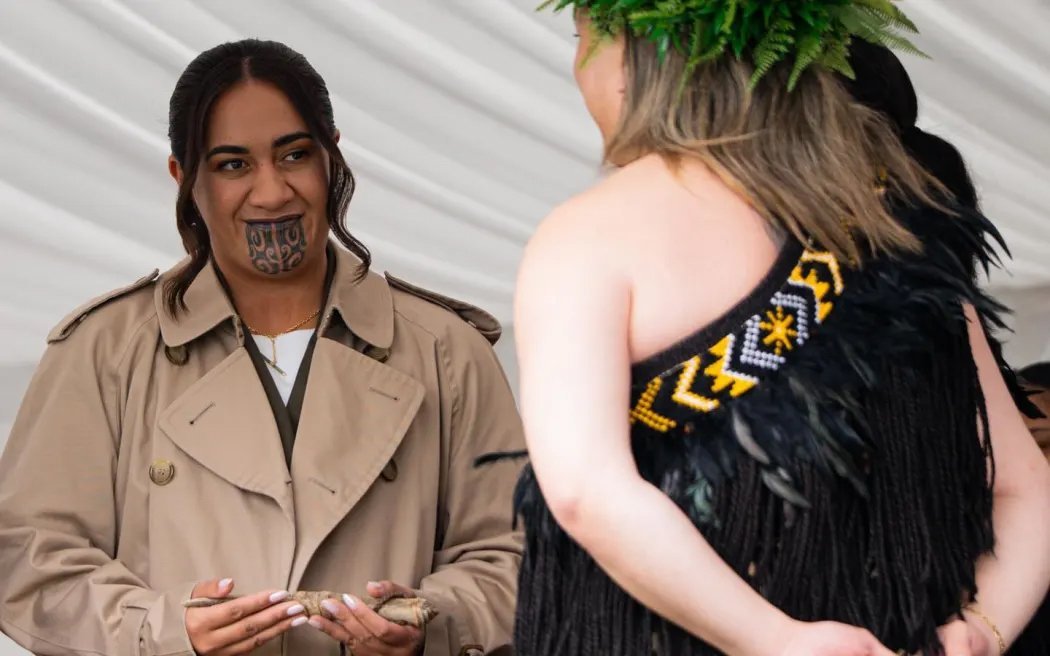

My father’s family is from Ngāruawāhia and are longtime supporters of the Kīngitanga movement. However, I live so far away that my involvement has been sporadic at best.
With the death of my father in May this year it was our duty to take his photograph back to Tūrangawaewae for what is known as "Ngā kawe mate o Tainui Waka". It is an event held on the first day of the Koroneihana to remember the Tainui people who died over the previous year with the following day set aside for the memory of those from the rest of the country.
It was important for us to honour our father along with the other Tainui people who have died in the last year including Tūheitia, the previous Māori King.
Thousands gathered outside the marae and as karanga and haka began, we entered Tūrangawaewae.
My daughter and my sister took turns carrying my father’s picture as we walked, almost paraded past the row of kaumatua who would speak on our behalf, past the Māhinārangi meeting house, past Kuini Ngāwai-hono-i-te-pō, past the row of welcoming speakers and past the bronze bust of Princess Te Puea before taking our seats.
The crowd was so big it took about 30 minutes for us all to enter the marae. The whole time the haka continued along with many karanga and people weeping in memory of those who had passed.
There was a wall of sound that joined in with our collective grieving and we found it surprisingly emotional. I have been to a few Koroneihana, but this was the first time I attended as someone in mourning and finally understood its role in the grieving process.
From my time in organising events I like to guess the size of a crowd. On that first day there would have been at least 5000 people there. It was an overwhelmingly Tainui crowd dressed in black.
Everything was run by Tainui people for Tainui people, from the traffic management and security to those hosting and feeding the visitors. It was an example of mana motuhake.
Unfortunately I wasn’t able to stay for the whole four days and so watched the first speech of Kuini Ngāwai-hono-i-te-pō on the internet.
She reminded people that she was a mere human like the rest of us, struggling with grief and loss. She said she had two main messages. The first was continuing the legacy of her father with a call to unity, kotahitanga.
The second was the motto of the Kīngitanga movement, mana motuhake, which can be translated as autonomy and independence which were needed to progress improved economic development. Her speech was entirely in te reo except for her translation of "economic summit".
While these were the political messages there were other unspoken messages. Her humour, her genuineness and the way she joined in the waiata with the other young people and swung her poi with joy signalled to the young people there that she was one of them.
In many ways the Māori world is a different world with our own priorities and processes.
I think for many New Zealanders it first truly came to notice in 2006 when the funeral of Kuini Te Atairangikaahu was televised and what had been private to Māoridom was broadcast across the country. At the time I spoke to a number of people who seemed mesmerised by the coverage as they had never realised this different world existed right under their noses.
There are some New Zealanders who aren’t part of this world and so they struggle to cope with the idea that there are people who belong to this country who have a different language, values and beliefs where even six Māori words in a children’s book can be threatening.
These, often European, New Zealanders desperately try to maintain their own position of privilege, complaining loudly if any of it intrudes on their life, seemingly scared of something they don’t understand and is beyond their control.
My father grew up in a time where there was obvious discrimination such as the infamous segregation of Pukekohe near where he went to school and the "colour bars" on venues in the South Island that he could not attend because Māori were banned.
The progress since then is undeniable and he had lived that progress. While he also lived to see the setbacks of the last two years, they are minor in comparison to the progress he saw throughout his life.
While he didn’t see it with physical eyes, it was a privilege to take his kawe mate back to Tūrangawaewae and being a part of the ongoing unstoppable progress that Kuini Ngāwai-hono-i-te-pō signalled.
• Dr Anaru Eketone is an associate professor in the University of Otago’s social and community work programme.













